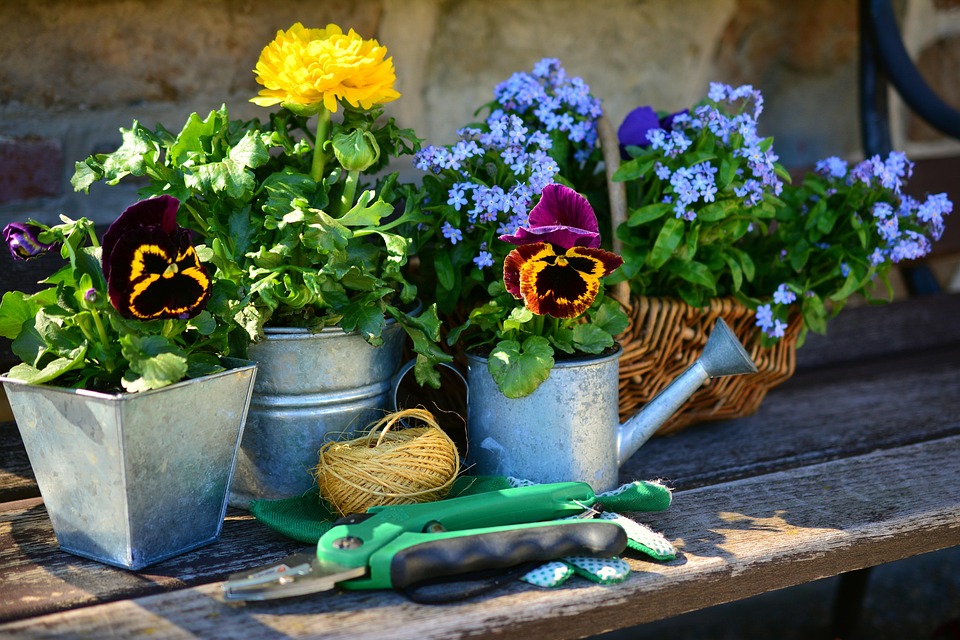Unearthing the Secret to Successful Plant Growth: Understanding the Importance of Soil Types
When it comes to growing healthy and thriving plants, one of the most crucial factors to consider is the type of soil you are using. The quality of soil can have a significant impact on the growth and development of your plants, as different types of soil have varying levels of nutrients, drainage, and pH levels. In this article, we will explore the importance of soil types in plant growth and how understanding these differences can help you achieve successful gardening results.
The Role of Soil Types in Plant Growth
Soil is the foundation of any successful garden, as it provides essential nutrients, water, and support for plant roots. Different types of soil have different characteristics that can impact plant growth in various ways. Some soils are rich in nutrients and hold moisture well, while others may be poor in nutrients and drain poorly. Understanding the specific needs of your plants and the characteristics of your soil can help you create an ideal growing environment for your garden.
Types of Soil
There are several main types of soil commonly found in gardens, each with its own unique characteristics:
- Clay soil: Clay soil is heavy and holds moisture well, but it can also become compacted and waterlogged easily.
- Sandy soil: Sandy soil is light and drains quickly, but it may not hold nutrients well.
- Loamy soil: Loamy soil is a balance of clay, sand, and silt, making it ideal for most plants as it holds moisture and nutrients well.
- Peat soil: Peat soil is acidic and holds moisture well, making it ideal for acid-loving plants like azaleas and blueberries.
Choosing the Right Soil for Your Plants
When selecting soil for your garden, it is important to consider the specific needs of your plants. Some plants thrive in well-drained sandy soil, while others prefer the moisture-retaining qualities of clay soil. Conducting a soil test can help you determine the pH level and nutrient content of your soil, allowing you to make informed decisions about which amendments to add to improve its quality.
Amending Your Soil
If your soil is lacking in nutrients or has poor drainage, you can amend it with organic matter such as compost, manure, or peat moss. Adding these amendments can improve soil structure, increase nutrient levels, and enhance drainage, creating a more hospitable environment for your plants to grow.
Maintaining Healthy Soil
Once you have selected the right soil for your garden and amended it as needed, it is important to maintain its health to ensure the continued growth and success of your plants. Regularly testing your soil, monitoring its moisture levels, and adding organic matter as needed can help you keep your soil healthy and productive for years to come.
Common Questions About Soil Types
Here are some common questions about soil types and their impact on plant growth:
- Can I use any type of soil for my plants? While most plants can adapt to a variety of soil types, choosing the right soil for your specific plants can help them thrive and produce better results.
- How can I improve the quality of my soil? Adding organic matter, such as compost or manure, can help improve soil structure, increase nutrient levels, and enhance drainage.
- What should I do if my soil is too acidic or alkaline? Adding lime to acidic soil or sulfur to alkaline soil can help adjust the pH level to create a more balanced growing environment for your plants.
Conclusion
Understanding the importance of soil types in plant growth is essential for creating a successful garden. By choosing the right soil for your plants, amending it as needed, and maintaining its health, you can create an ideal growing environment that will support the growth and development of your plants. By following these tips and guidelines, you can unearth the secret to successful plant growth and enjoy a bountiful garden for years to come.


















































